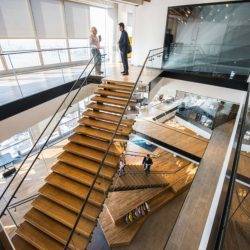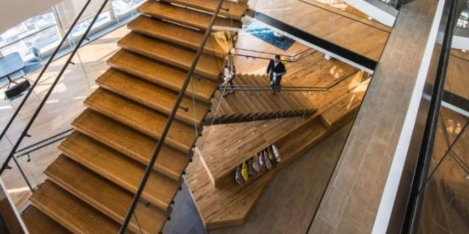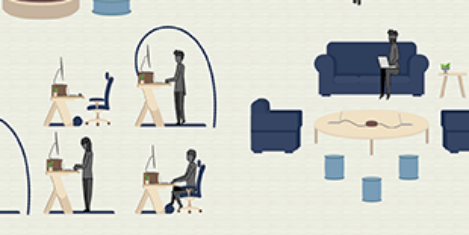January 30, 2017
The Boston Consulting Group: pushing the art and science of workplace design 0
 This month, The Boston Consulting Group (BCG) opened its doors to its latest office in what’s been described as the new heart of New York; namely, the up-and-coming Hudson Yards development. Thought leaders from the world of workplace design including a representative from including Workplace Insight were invited to the launch of the new workspace to find out how the world’s leading advisor on business strategy has pushed the art and science of workplace design. BCG, which is consistently ranked near the top of Fortune’s annual Best Companies to Work For survey, worked with an array of experts for input into the design and use of innovative technologies, including Gensler, Humanyze and Unwork. Leesman was brought in to offer a neutral voice when the project was already in motion to validate the design proposal.
This month, The Boston Consulting Group (BCG) opened its doors to its latest office in what’s been described as the new heart of New York; namely, the up-and-coming Hudson Yards development. Thought leaders from the world of workplace design including a representative from including Workplace Insight were invited to the launch of the new workspace to find out how the world’s leading advisor on business strategy has pushed the art and science of workplace design. BCG, which is consistently ranked near the top of Fortune’s annual Best Companies to Work For survey, worked with an array of experts for input into the design and use of innovative technologies, including Gensler, Humanyze and Unwork. Leesman was brought in to offer a neutral voice when the project was already in motion to validate the design proposal.
































January 20, 2017
The facts about sit stand work are already lost in the stream of narrative 0
by Mark Eltringham • Comment, Knowledge, Wellbeing, Workplace design
(more…)